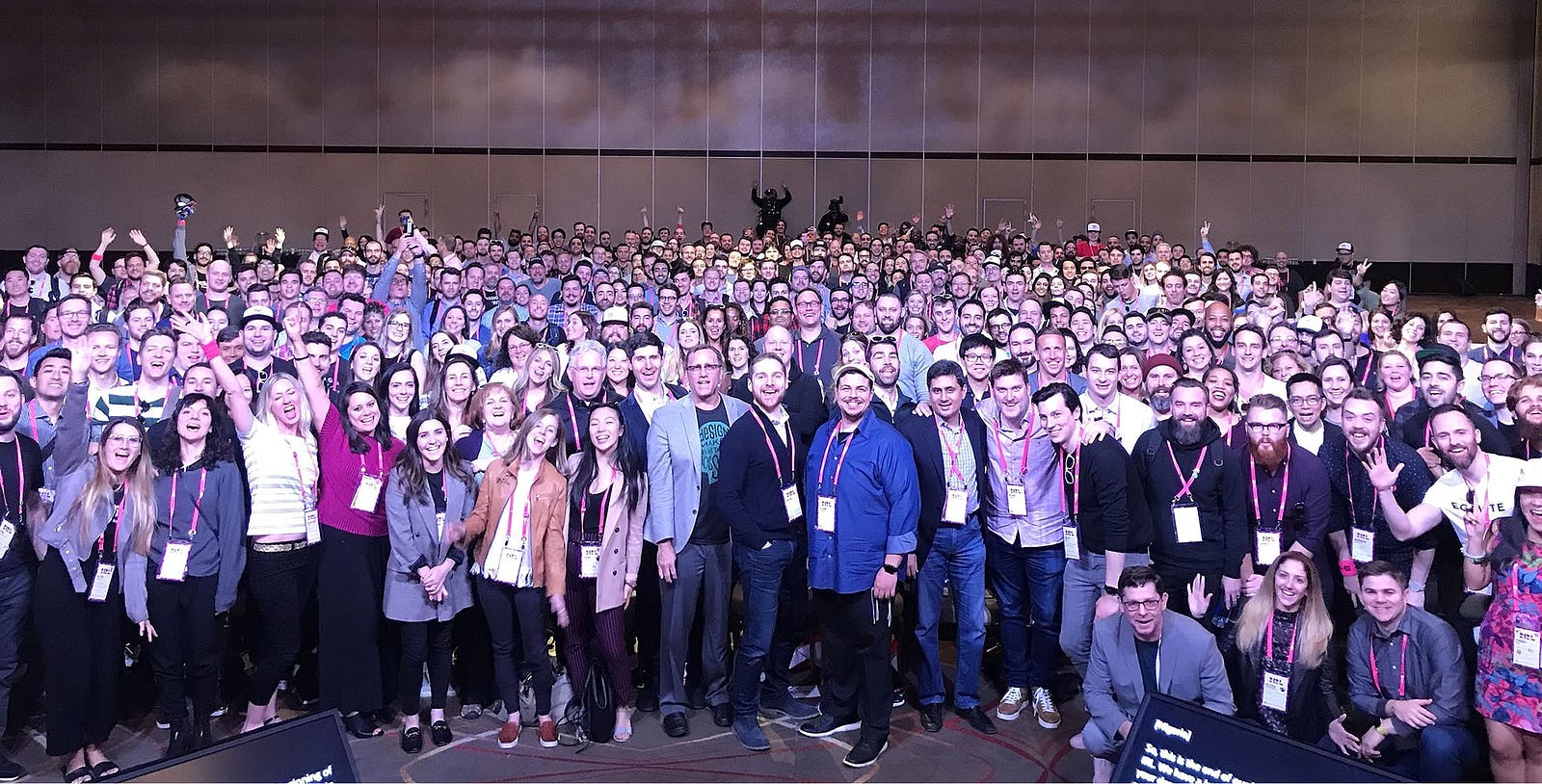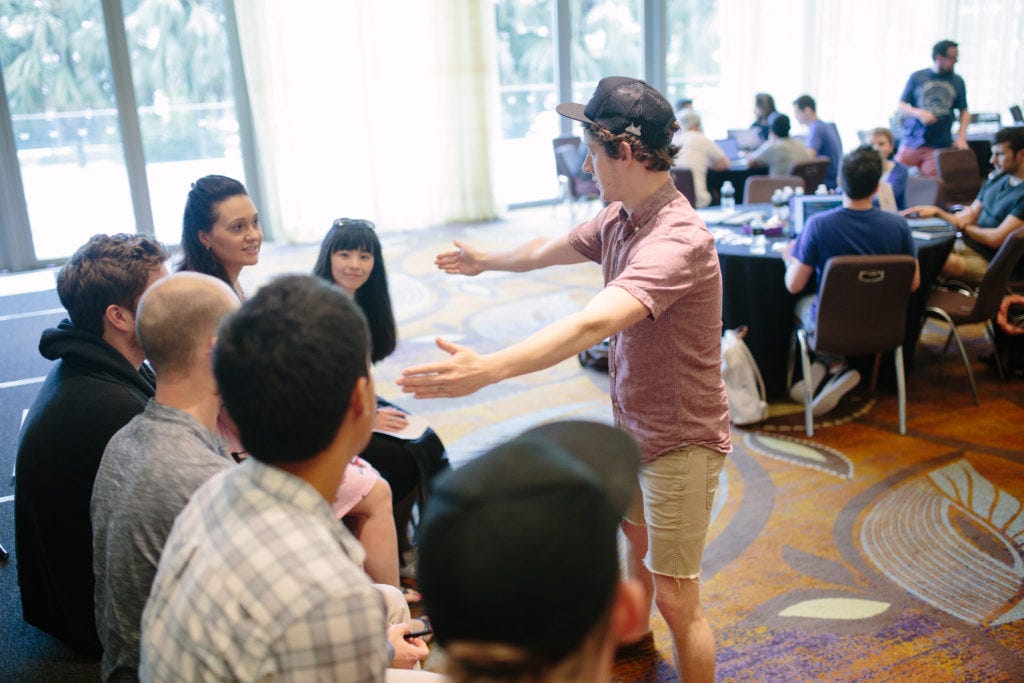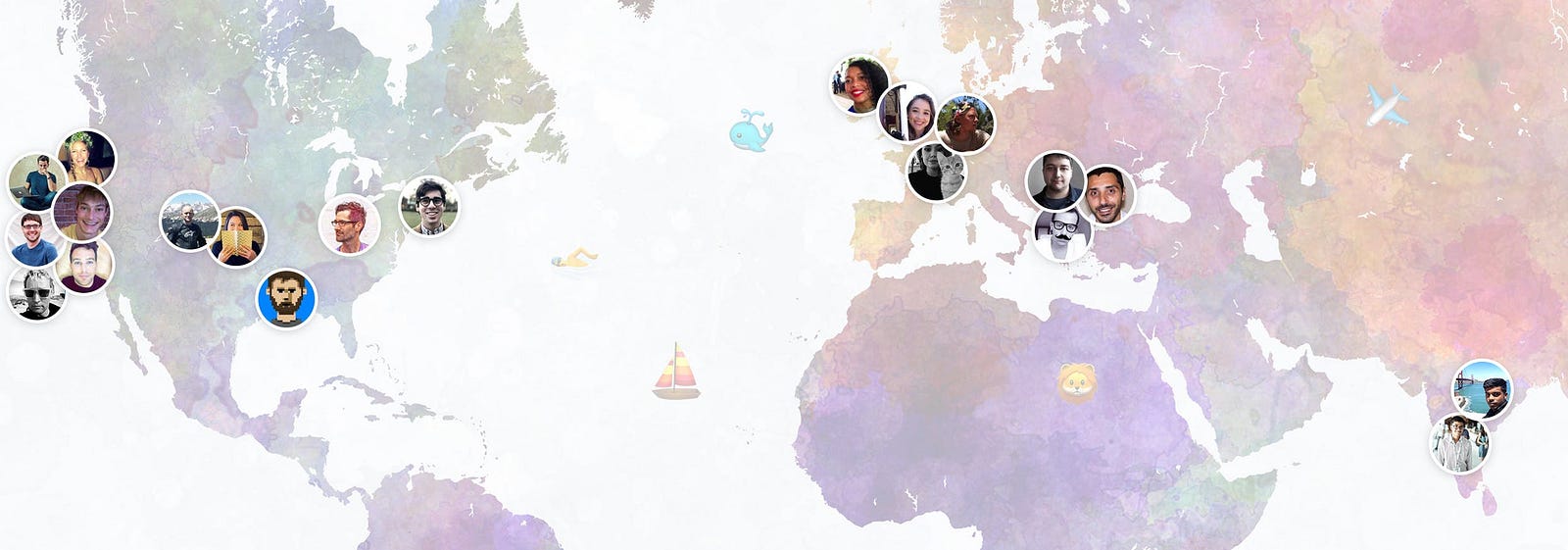Here Come the Frogs (Fully Remote Organizations) – Greg Caplan – Medium
Fully remote organizations, or Frogs, are quickly emerging across all categories of knowledge work. From software to social impact and fashion to financial services and everything in between, these Frogs are popping up and winning the talent war against the incumbents. With that advantage alone, they are growing much more rapidly and will soon dominate the marketplace.

What is a Frog?
Frogs (Fully Remote Organizations) are a new type of organization that, like frogs, were not born on land, but instead in a more fluid digital environment. As people found each other online and started creating together digitally, they just kept building and growing their organizations the way that they always had — online.
Automattic is probably the first and most iconic example of a Frog. When the early team started working together in 2003, they were creating an open-source project for creating websites called WordPress. When they decided to start the company Automattic, they just kept working together the way they always had, online. Apparently, this model worked well for them as WordPress now powers powers over 30% of all websites and has grown to become an 850 person organization.
Until maybe 15 years ago, operating as a Frog was basically impossible because communication largely happened face-to-face. As the internet permeated the globe and productivity and communication tools evolved, business now happens almost entirely digitally, empowering this operating model to thrive.

The small scale of most Frogs to date has led most people to ignore or underestimate the strategy. Because this is only recently possible, very few Frogs have had the time to grow into success stories of the model. With 800 person strong Frog InVision now worth $1.9 billion and Frog Gitlab raising capital at over $1b valuation, everything is about to change. Frogs are the organizational structure of the future and people are now just starting to recognize this. One day soon, the majority of knowledge workers will be working at Frogs as they emerge in every category and outpace the incumbents with the benefits of the model.
Rise of Remote Work
80% to 90% of the US workforce would like to work remotely at least part time. In one sense, this is a pretty shocking statistic, but anecdotally, it totally makes sense that workers want the freedom and flexibility to work when, where and how they want. Honestly, who LIKES having to commute into an office so that their boss can see that they are actually working, or bear the constant interruptions of ‘popular’ open office plans? Workers are demanding remote options and either forcing legacy companies to adopt remote working policies or voting with their feet by taking new jobs that have that flexibility. This has taken what used to be a fringe behavior into the mainstream. 70 percent of professionals now work remotely at least one day a week, while 53 percent work remotely for at least half of the week.
Matt Mullenweg agrees that “You see people who are experienced and just don’t want to go to Cupertino or Redmond or Mountain View anymore and they’ll start to leave the giants and go to start-ups and younger companies that are distributed first.”
Think about the 5 most talented professionals you know. How many of them are already working in some unique, flexible way vs full time commuting into the campus of a large company? Most of the best people are already doing this and the rest will figure out a way to follow very soon.
Advantages of being a Frog
Increasingly, the way to win in business is having the best people on your team. Google is famous for their in-office perks and lavish salaries that have allowed them to assemble the best team in the world, which in turn means they have the best products and services in the world. Google and the other big tech companies now have huge amounts of resources to invest in even higher salaries and perks, making it basically impossible for new companies to compete with them for talent within 200 miles of Silicon Valley.
The key advantage of being a Frog is opening up the talent pool to the entire world. Allowing people to work when and where they want, Frogs report being able to recruit better talent faster and at lower salary levels than their competitors. Not only are Frogs better able to attract top talent, they also have well above average retention and diversity of perspective and experience all at a lower total cost due to lower average salaries and no office space expense. The unique opportunity of being a Frog might be the one thing strong enough to eventually disrupt the largest companies of today that currently seem invincible in their path to ever growing power and influence.

David Fraga, COO of InVision said, “Being a fully distributed company has been a powerful advantage for us at InVision. We’re able to find and work with the best talent in the world, no matter where they are, we have a higher than average retention rate across our team and our products reflect a diversity of perspective and experience that comes from having teammates from all across the country and around the world.”

Joel Gascoigne, CEO and Co-founder of Buffer, a Frog that builds tools to help business manage their social media said, “There are many benefits to Buffer being a fully remote company. A major one is that our hiring is not limited to a physical location, we have the opportunity to hire team members around the world who are aligned with our values. Another powerful benefit is that work is happening at Buffer around the clock. If a customer reaches out when a teammate on the West Coast is asleep, a teammate in Europe will be online and able to help. Remote work additionally allows team members to travel for leisure or move across the country or the world for personal reasons, with much reduced stress. Moving location no longer needs to mean finding a new job.”

Matt Mullenweg, CEO of Automattic said, “Where it really stuck with me that we were stay with this model was when every other start up founder I knew was having a hard time hiring and we weren’t. I was kind of conflicted between with telling everyone to do this and trying to keep it secret so we can continue to hire the amazing people all over the world.” Also, Automattic is “at a 4% attrition, maybe a little lower. It’s really low for other startups.”

Andreas Klinger, CTO, Product Hunt said “A lot of people mention costs or quality of living or bigger talent pool, but a lot of people forget about retention, which is ridiculous! If you compare to San Francisco standards, where its, if you are lucky, one and a half years to two years. The retention in good remote teams, is just absurd in comparison.”
Traditional companies transitioning to hybrid
Since most companies were started before this model was even possible, the majority of remote work is still done at traditional companies who are migrating to a hybrid model. While it seems like this is working very well for many companies, including Amazon, Dell, Salesforce, SAP, Wells Fargo and more, who are aggressively hiring remote workers, it is still a challenge to do well. Making a hybrid remote culture work requires real buy-in across the organization, including from the top. Reworking policies and norms within the company to support remote co-workers means rethinking how communication is done across the board. If meetings are still in conference rooms and the remote team is just a face on the wall, or worse, a voice on a speaker in the middle of the table, it is very hard for them to participate on equal footing as the rest of the meeting participants.
Frogs, on the other hand, are fully remote, so they create processes and culture focused on making remote collaboration work well. This means they can take advantage of the benefits of remote, but also don’t have the downsides of the hybrid environment, enabling them to be better competitors and grow much faster.
“We are seeing more and more interesting companies starting fully remote and building teams distributed across geographies. I think it’s possible that half the new unicorns of the next decade will be fully remote” — Erik Torenberg, Co-founder and Partner at Village Global, a venture firm backed by entrepreneurs including Bill Gates, Jeff Bezos and Mark Zuckerberg
Over 100 known Frogs
We found over 100 Frogs, but there are definitely more out there. If you know of any that weren’t included, please let us know! As more and more companies adopt this structure and realize the benefits in hiring, retention, diversity and cost savings, they will grow faster than their peers and become the largest, most powerful organizations in the world.

Thank you to the amazing people who helped create this piece: @sampessin @sgribov @remoteyear @tylertringas @DannyCrichton @andreasklinger @InVisionApp @davidfraga @lindseylinds @hailleymari @buffer @joelgascoigne @flexjobs @eriktorenberg @jrhusney

